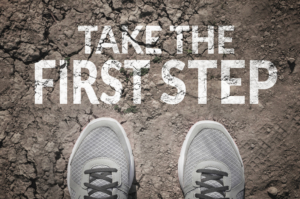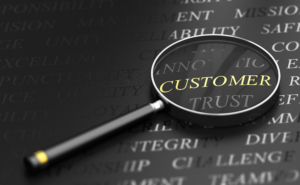The Answer Trap: When Solutions Become the Problem
 You’ve graduated from Question Obsession 101. You’ve learned not to pepper clients with endless questions or craft that perfect “Keystone Arch Question” expecting miracles. You’re focusing on relationships, creating insights, and empowering clients.
You’ve graduated from Question Obsession 101. You’ve learned not to pepper clients with endless questions or craft that perfect “Keystone Arch Question” expecting miracles. You’re focusing on relationships, creating insights, and empowering clients.
But have you fallen into the next trap? The Answer Trap.
Many consultants who overcome question obsession swing to the opposite extreme, a belief that the ultimate value they bring is the profound, transformative answer that will solve all client problems.
“Just give me the solution,” clients sometimes demand. And we, eager to please, rush to deliver. We believe this is what justifies our fees, demonstrates our expertise, and secures future business. But the Answer Trap is just as dangerous as Question Obsession.
The Obsession with Answers
The world of consulting and sales is awash with “solution frameworks,” “proven methodologies,” and “transformative approaches.” We carry these in our metaphorical hip pockets, ready to unfold them at the first hint of a client problem.
Sound familiar?
- Do you find yourself mentally fitting client situations into your pre-existing solution frameworks while they’re still talking?
- Have you ever felt disappointed when a client’s problem doesn’t match your favorite solution?
- Do you have a mental hierarchy of solutions you’re hoping to sell, regardless of the client’s specific situation?
When you only have a hammer, everything starts looking like a nail.
The Pattern Pitfall
The consulting version of answer obsession materializes in playbooks; the sales version in packages. Both betray a fundamental misunderstanding of what clients truly need.
It’s tempting to believe that, once you show the client your three-phase approach and proprietary diagnostic tool, they’ll be relieved to know you’ve solved this exact problem a dozen times before for a dozen different clients.
They won’t be.
That’s because good answers, like good questions, are necessary—but insufficient. The Answer Trap leads to cookie-cutter approaches, shallow understanding, and solutions that don’t stick. It amplifies self-orientation, the very thing we were trying to avoid by focusing on questions in the first place.
Having the “right” answer isn’t helpful if the client doesn’t recognize that it’s the right answer for them.
Beyond Answer Obsession
The true value of consulting isn’t in the perfection of your questions or the brilliance of your answers. It’s in the collaborative journey you take with clients. Three principles can help navigate beyond the Answer Trap:
Solutions as conversation starters: The best solutions aren’t endpoints but starting points for deeper dialogue. When you offer potential answers, frame them as “thinking aids” rather than final verdicts. “Here’s one approach I’ve seen work in similar situations. What parts of this resonate with your experience?” This invites the client into co-creation rather than passive acceptance.
Customization through collaboration: Generic solutions fail because they lack the client’s fingerprints. The implementation details that make solutions work are often discovered through joint problem-solving. “The framework provides structure, but your team’s knowledge of how decisions really get made here is what will make this successful. How might we adapt this approach to your culture?”
Embracing productive tension: The magic often happens in the space between your expertise and the client’s context. Don’t rush to resolve every uncertainty or smooth every wrinkle. Sometimes the most valuable service you can provide is creating a productive tension that challenges both your thinking and theirs.
It’s not what answer you provide; it’s how you provide it. The best consultants understand that solutions are tools for client transformation, not products to be delivered. The answer itself is less important than the client’s ownership of it, their capacity to implement it, and their ability to evolve it as circumstances change.
Avoid the trap: get past answers for answers’ sake, and focus on building the client’s capability to solve not just today’s challenge, but tomorrow’s as well.
Resources to Build Your Trust Skills:
- Join or watch a replay of our free webinars.
- Build trust on your terms through our Self-Paced Online Courses.
- Join the crowd and sign up for one of our Public Virtual Workshops.
- Subscribe to our newsletter.
- Follow us on LinkedIn.
Contact us directly to learn about private workshops
I wrote this blog with the assistance of AI.

 According to a recent
According to a recent 
 Let’s talk about focus.
Let’s talk about focus.




 It raises to the forefront the question: How do you create trust at a distance? Those who figure that out now will be appreciated, effective, and successful going forward.
It raises to the forefront the question: How do you create trust at a distance? Those who figure that out now will be appreciated, effective, and successful going forward. As the Novel Coronavirus pandemic disrupts business across the globe, companies are scrambling to assess and mitigate the near-term impact to their business. One of our clients recently shared an email he sent to his team of client relationship partners, reminding them to take a trust-building approach: reach out with information, but foremost with humanity.
As the Novel Coronavirus pandemic disrupts business across the globe, companies are scrambling to assess and mitigate the near-term impact to their business. One of our clients recently shared an email he sent to his team of client relationship partners, reminding them to take a trust-building approach: reach out with information, but foremost with humanity.